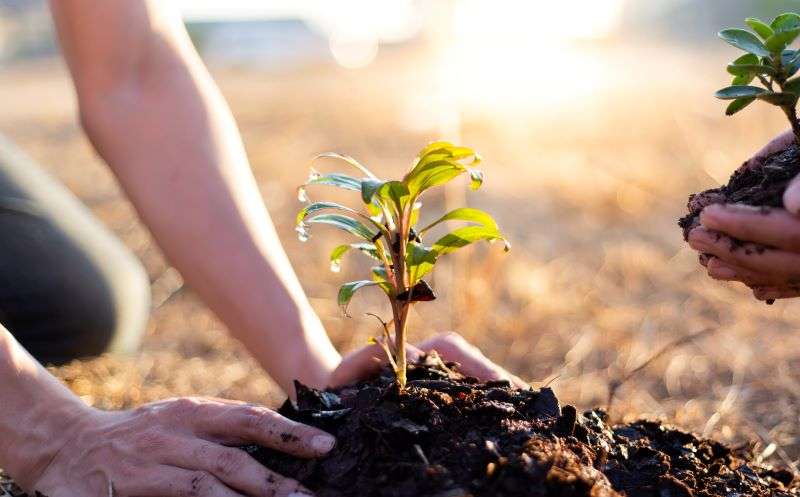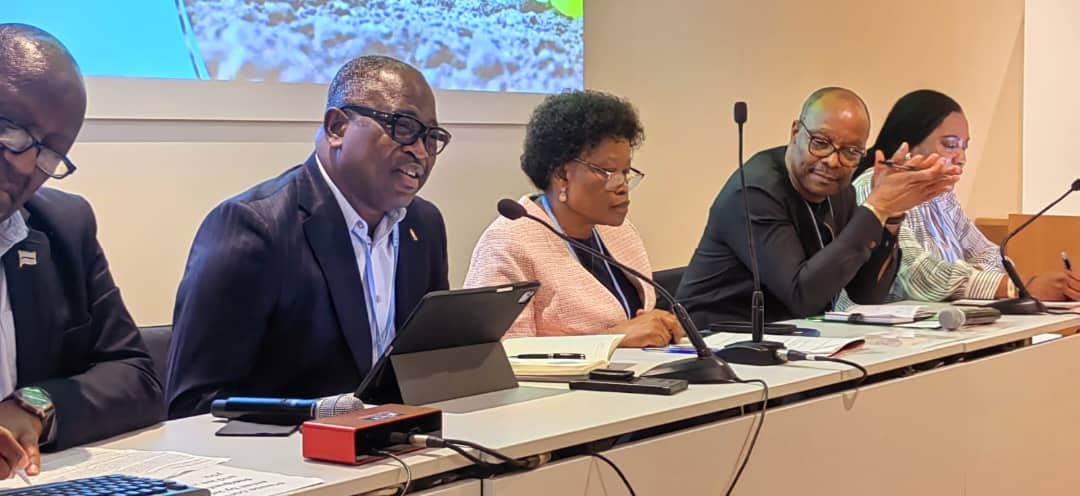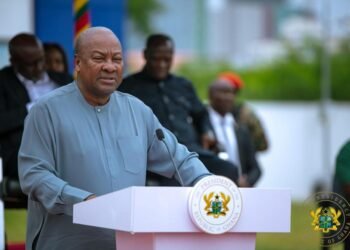Ghana’s Minister of State for Climate Change and Sustainability, Hon. Seidu Issifu, has issued a stirring appeal for climate debt forgiveness, framing it as a moral and economic imperative in the face of worsening climate impacts in the Global South.
Speaking at the Second Informal Africa-Europe Climate Convening, held on the sidelines of the UNFCCC SB62 Conference in Bonn, Hon. Issifu did not mince words.
“The Global South is borrowing to survive a crisis created by the Global North.
“From rebuilding after climate disasters to protecting animal and food systems, these loans are not a choice — they are a lifeline. And that debt must be forgiven.”
Hon. Seidu Issifu, Minister of State for Climate Change and Sustainability
The session, co-hosted by the Africa-Europe Foundation (AEF), the African Union Commission (AUC), and the Pan-African Climate Justice Alliance (PACJA), brought together key African and European climate negotiators and stakeholders ahead of COP30 and the 7th AU-EU Summit. Hon. Issifu’s intervention stood out for its clarity and urgency.

In his remarks, Hon. Issifu linked the growing sovereign debt crisis across Africa to escalating climate shocks — a reality he said is largely ignored in global financial frameworks.
“We are paying for destruction we did not create. We are borrowing to adapt, to recover, to survive — while the world continues to debate pledges and procedures.
“This is not development finance. This is reparative justice. And the debt must be cancelled.”
Hon. Seidu Issifu, Minister of State for Climate Change and Sustainability
He cited floods, droughts, heatwaves, and disease outbreaks as the new norm for many African countries — forcing governments to divert already scarce public resources toward recovery, while taking on more debt just to maintain basic resilience infrastructure.
“Aid” Is Not the Answer — Justice Is

Hon. Issifu challenged traditional narratives of climate finance as “aid” or “assistance,” urging the international community to instead view it through a justice lens.
“Climate ambition without justice is hypocrisy. The finance gap is not a failure of generosity. It is a failure of global conscience.”
Hon. Seidu Issifu, Minister of State for Climate Change and Sustainability
Africa, which contributes less than 4% of global emissions, faces some of the highest climate adaptation costs — projected between $1.6 trillion and $1.9 trillion by 2030, according to African Development Bank estimates.
Meanwhile, developed nations have fallen short of even the $100 billion annual pledge, let alone the more recent $300 billion per year by 2035 target set at COP29.
In a striking segment of his speech, Hon. Issifu linked climate-induced debt directly to weakened animal health systems — an often overlooked area of vulnerability.
Rising temperatures and changing rainfall patterns are increasing disease outbreaks in livestock and fisheries, threatening rural livelihoods and food security.
“Every dollar spent servicing debt is a dollar taken away from veterinarians, fishers, farmers, and young scientists.
“It is a dollar taken from the frontline of resilience.”
Hon. Seidu Issifu, Minister of State for Climate Change and Sustainability
He urged donors to consider how debt is choking off the very investments needed to build climate-resilient agricultural systems, particularly in areas such as animal disease surveillance, aquaculture, and veterinary public health.
Bold Proposals for Real Action

As the world prepares for COP30 in Belém, Brazil, Hon. Issifu emphasized the urgent need to include debt justice in the global climate conversation. He highlighted that addressing financial burdens is essential for meaningful climate action, especially for vulnerable nations.
Among his key proposals was the creation of a new Africa-Europe Compact on Climate Debt Justice. He also called for automatic debt cancellation clauses that would be triggered by climate-related disasters, allowing affected countries to recover more quickly.
Hon. Issifu further stressed the importance of targeted investments in resilience infrastructure—covering areas like food, water, health, and biodiversity.
He also advocated for the timely and fair operation of a Loss and Damage Fund, along with stronger accountability measures for climate finance from both donors and recipients.

“Let debt forgiveness be the first real test of climate solidarity. Let us show that when we talk about justice, we mean it.”
Hon. Seidu Issifu, Minister of State for Climate Change and Sustainability
Hon. Issifu’s address comes at a time of growing urgency. The year 2025 marks the 10th anniversary of the Paris Agreement, and countries are expected to update their Nationally Determined Contributions (NDCs) and finalize the Global Goal on Adaptation.
It also marks a litmus test for the relevance of the UN climate process amid economic instability and geopolitical upheaval.
“Debt cancellation is not about politics. It is about survival. If we are serious about climate action, let us begin with justice.”
Hon. Seidu Issifu, Minister of State for Climate Change and Sustainability
As COP30 approaches, Ghana’s powerful advocacy on climate debt forgiveness may resonate far beyond the negotiation rooms. For the millions facing rising seas, failing crops, and mounting bills — it is not a debate. It is a demand.
READ ALSO: Mastercard and Access Bank Unveil Innovative Age-Segmented Card to Empower Ghana’s Youth



















